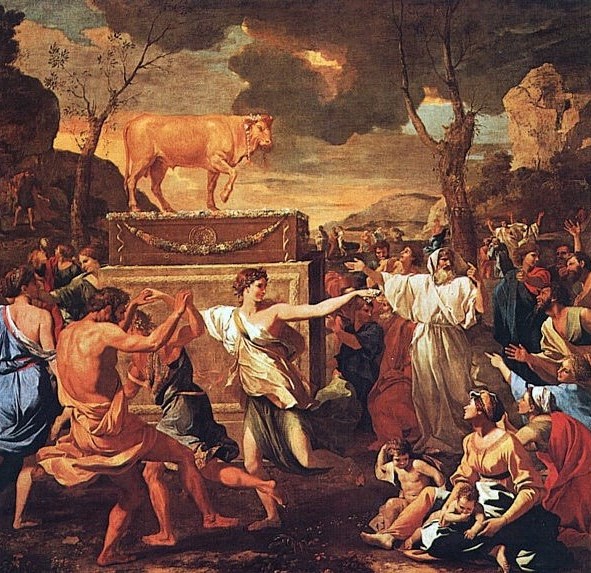 Last week, I wrote about the danger of self-chosen sacrifice, channeling evangelist Oswald Chambers, who warns us to “never decide the place of your own martyrdom.”
Last week, I wrote about the danger of self-chosen sacrifice, channeling evangelist Oswald Chambers, who warns us to “never decide the place of your own martyrdom.”
“Always guard against self-chosen service for God,” he continues. “Self-sacrifice may be a disease that impairs your service.”
As an example of how the process ought to go, Chambers looks to the story of Abraham and Isaac. God demanded something quite peculiar — the sacrifice of Abraham’s son — and Abraham simply obeyed. “God chose the test for Abraham,” Chambers writes, “and Abraham neither delayed nor protested, but steadily obeyed.”
In Cornelis Vonk’s primer on Exodus, part of CLP’s growing series, “Opening the Scriptures,” he highlights an example of the opposite.
Moses had gone up to Mount Sinai, where God was to send down his law in written form. Yet down below, even as the Israelites had quite visibly witnessed the supernatural power of God — whether through the plagues, the parting of the Red Sea, the fire by night, etc. — they gave way to their humanistic impulses. Anxious and impatient for Moses to return and eager for guidance and direction, they could wait no longer.
“Make us gods who shall go before us,” they said.
They longed to serve something or someone, and they were willing to give of their precious gold. But although the Golden Calf provided a convenient illusion of the “other” — “an image of Yahweh to go before us!” — the idol they indulged was, in fact, themselves.
As Vonk explains, even throughout radical and intimate communion with God, and even upon witnessing the remarkable majesty of our Creator, it can be rather easy for us to fall prey to that routine temptation to look inward instead of upward:
Just then, Yahweh was busy laying a beautiful plan before Moses about how he would live in the midst of his people.
Self-willed religion is always getting in God’s way.
Even God’s descent to us in the incarnation of his Word is shoved aside while self-willed religion tries to come up with something better.
…When it comes to worshiping God, there is no room for invention! We must not slip into a self-willed religion. Everything that we believe and confess about God, about his Christ, his Spirit, his Word, his church, the fruits of our faith, including the forgiveness of sins and the renewal of our lives—all of this we must be able to prove element by element on the basis of what Scripture says. Any step we take beyond Scripture in such matters can cause us to slip back into “Canaanite” errors. (emphasis added)
God sought to set his people apart, and he seeks the same today. Ours is a service that transcends the error and folly of this world. The “distortions of heathendom” are not confined to Old Testament conflicts and spiritual battles. They are alive and well in the basic struggle of our belief, and that struggle continues on in the everyday choices we make, whether in our families, communities, economic pursuits, or otherwise.
Individualism will whisper, materialism will tempt, and lust will allure. The gods of self-willed religion lurk in all places, and they will always demand sacrifice. But standing against them is the the power of the Gospel and the love of the God who gave it: Christ, the Spirit, his Word, his church, and the fruits of our faith. From the mountain, he sends down his law, if only we’d take time to look, listen, and obey.
Through Him, we can reach deeper, stretch wider, and aim higher, serving our neighbors and creation wisely and generously, but doing so for the ultimate glory of the God.
[product sku=”1445″]

